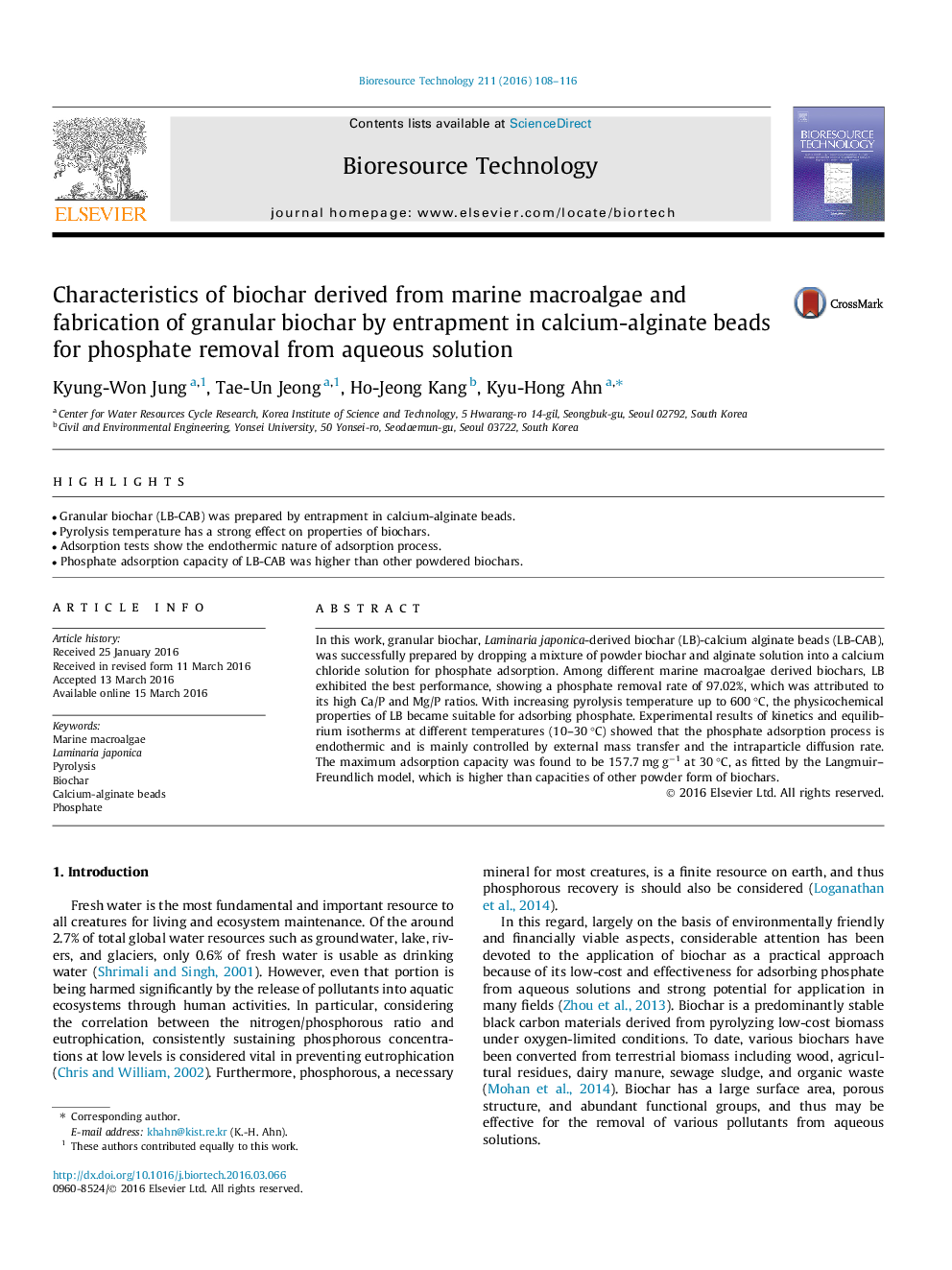| Article ID | Journal | Published Year | Pages | File Type |
|---|---|---|---|---|
| 7071527 | Bioresource Technology | 2016 | 9 Pages |
Abstract
In this work, granular biochar, Laminaria japonica-derived biochar (LB)-calcium alginate beads (LB-CAB), was successfully prepared by dropping a mixture of powder biochar and alginate solution into a calcium chloride solution for phosphate adsorption. Among different marine macroalgae derived biochars, LB exhibited the best performance, showing a phosphate removal rate of 97.02%, which was attributed to its high Ca/P and Mg/P ratios. With increasing pyrolysis temperature up to 600 °C, the physicochemical properties of LB became suitable for adsorbing phosphate. Experimental results of kinetics and equilibrium isotherms at different temperatures (10-30 °C) showed that the phosphate adsorption process is endothermic and is mainly controlled by external mass transfer and the intraparticle diffusion rate. The maximum adsorption capacity was found to be 157.7 mg gâ1 at 30 °C, as fitted by the Langmuir-Freundlich model, which is higher than capacities of other powder form of biochars.
Related Topics
Physical Sciences and Engineering
Chemical Engineering
Process Chemistry and Technology
Authors
Kyung-Won Jung, Tae-Un Jeong, Ho-Jeong Kang, Kyu-Hong Ahn,
